5 AI ML in Healthcare Censored Projects
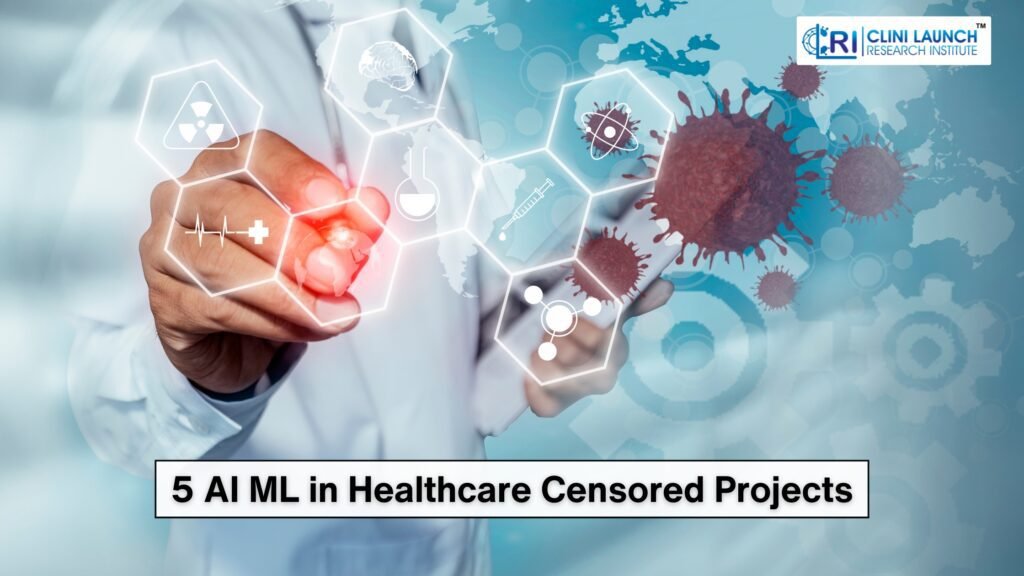
Get to know censored projects of AI ML in healthcare and learn how it is shaping the future of healthcare. Enroll today.
Incredible Robotics and Artificial Intelligence 2025
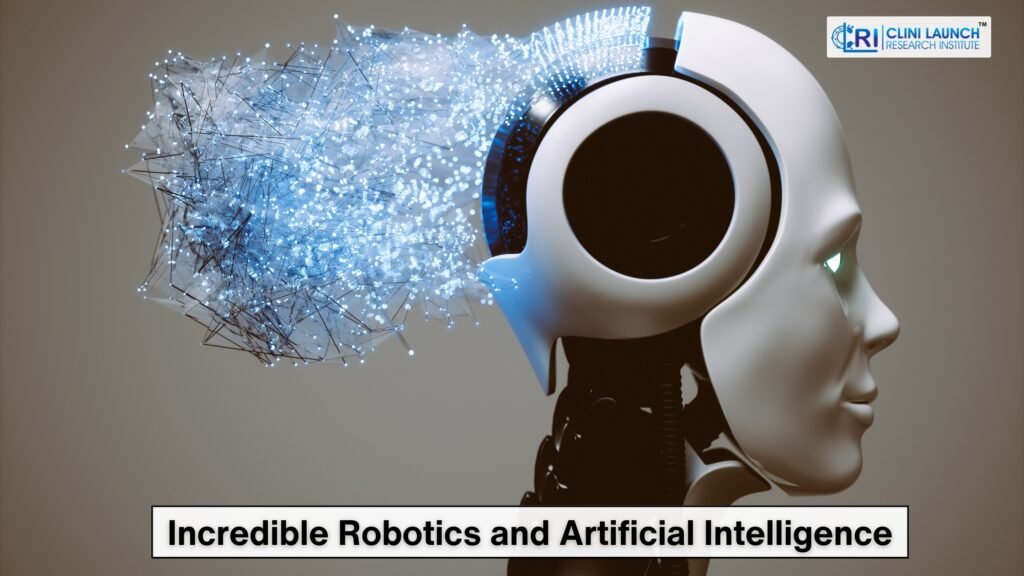
Explore future considerations for robotics and artificial intelligence in healthcare transforming its practices and treatment outcomes. Learn more.
Adequate AI and Machine Learning in Healthcare
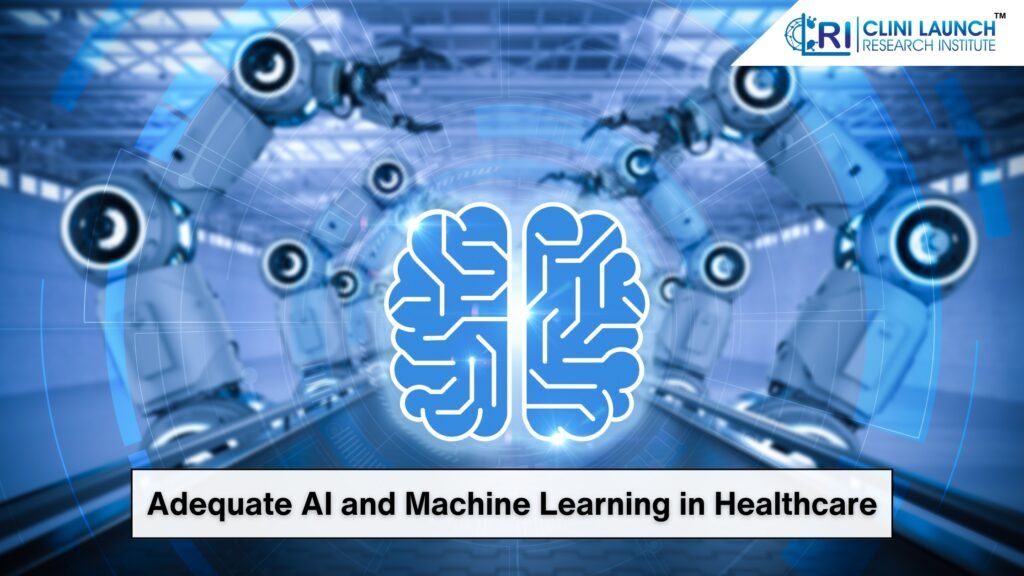
Explore AI and Machine Learning in healthcare applications. Get to know future considerations for artificial intelligence.
MBA Healthcare Management: An Astounding Degree to Pursue in 2024

Gain critical insights and leadership skills to excel in the fast-paced healthcare management. Enroll for MBA healthcare management in 2024.
MBA Health Management: Beyond Opportunities in 2024
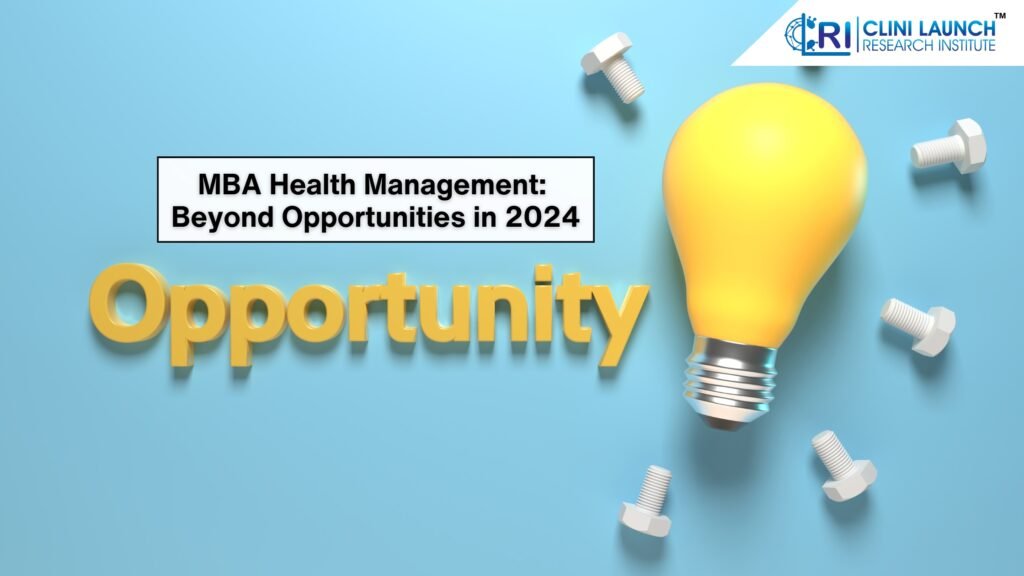
“Discover the future of MBA health management beyond traditional dual specialisation and PG Diploma courses. Explore your career opportunities”.
Advanced Machine Learning in Medical Imaging Classified 2024
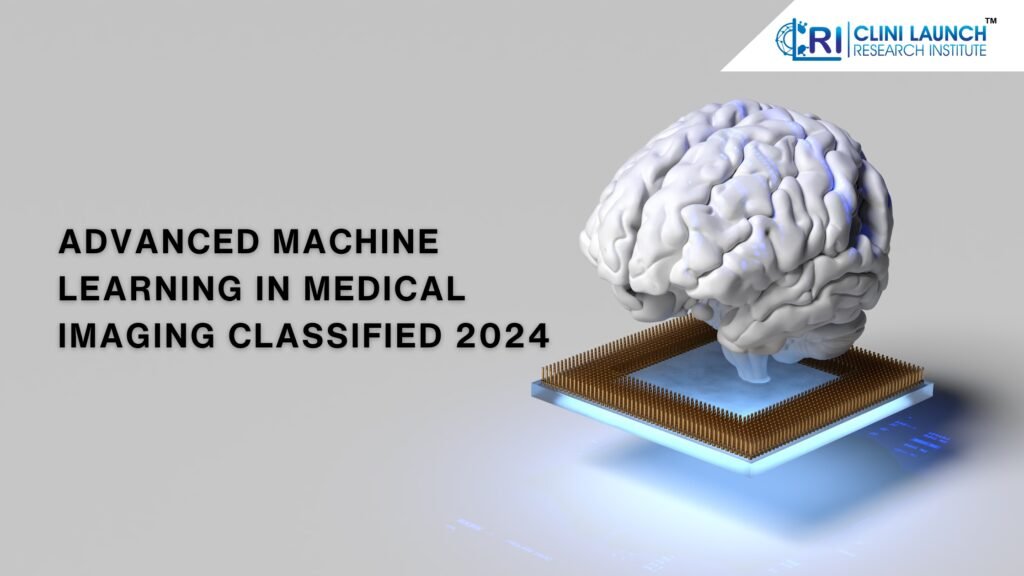
Medical imaging is a medical field in which healthcare professionals recreate images of body parts for treatment or diagnostic purposes. The procedures include non-invasive tests allowing doctors to diagnose diseases and injuries without interruption. While machine learning in medical imaging plays a vital role in CT scans, MRIs, X-rays, and ultrasounds, it provides valuable insights into the human body. In comparison to modern analysis, traditional image analysis is time-consuming and subjective. Radiologists face a heavy workload with an assumption that human elements can lead to inconsistencies. This is where machine learning in medical imaging comes into the picture changing the game of healthcare. In this blog, you will be getting through the advancement in diagnostics with machine learning, artificial intelligence in radiology, and computer diagnosis. Machine Learning in Medical Imaging Could you imagine a doctor checking out all the medical images? They need to verify and progressively improve their ability to identify patterns. Here the use of machine learning comes in to analyze vast amounts of medical image data. Furthermore, machine learning itself learns to recognize the patterns associated with specific diseases. They excel at tasks like anomaly detection, where they can flag suspicious regions in an image that might warrant further investigation. Want to Learn AI & ML in Healthcare? Join the best healthcare training institute in India Diagnostic Imaging Advances with Machine Learning Machine learning is a subset of artificial intelligence that doctors have been applying since the 1980s. Based on the expert knowledge, the users first set up clear instructions with parameters for diagnostic imaging advances features. With the help of machine learning algorithms, the instructors can find the areas, histograms, and shapes of the region of interest that they can extract. With the data availability, a huge part of them are used to train with machine learning algorithms and the rest is to be used for testing purposes. These are some of the machine learning diagnosis imaging advanced features: Early Disease Detection Machine learning algorithms contribute to early disease detection by processing mass data with the recognition of complex patterns using AI. It sifts through mammograms or skin cancer screening, spotting subtle signs of malignancy, and may be missed by the human eye. This allows earlier intervention significantly improving patient outcomes. Improved Accuracy and Efficiency Machine learning acts as a powerful assistant to radiologists. It can pre-analyze images, highlighting areas of interest and streamlining the workflow. This reduces human error and frees up radiologists’ time for complex cases, ultimately leading to faster and more accurate diagnoses. Personalized Medicine Machine learning holds immense potential for personalized medicine. Analyzing a patient’s medical history, genetic data, and imaging results, can help predict disease risk and tailor treatment plans to individual needs. Want to Learn AI & ML in Healthcare? Join the best healthcare training institute in Bangalore The Role of AI in Radiology Artificial intelligence is an optimizing tool assisting radiologists as they detect suspicious findings in imaging exams, while also making the diagnosis, choosing a personalized patient protocol, tracking dose parameters, providing radiation risk estimation, and minimizing diagnosis errors. The potential of AI in radiology extends far beyond current applications. Ongoing research is exploring areas like: Ethical considerations and human-AI collaboration are crucial aspects of this evolving field. Transparency and responsible development are essential to ensure trust and optimal patient care. Want to Learn AI & ML in Healthcare? Join the best healthcare training institute in Chennai To Sum Up Artificial intelligence and machine learning revolutionize medical imaging, ushering in a new era of diagnostics. These advancements hold immense promise to improve patient outcomes by enabling early disease detection, increased accuracy and efficiency in computer-aided diagnosis, and personalized treatment plans. While ethical considerations and human-AI collaboration require careful attention, the future of medical imaging is undoubtedly intertwined with machine learning and AI. As technology continues, radiologists will have powerful tools to enhance their capabilities and provide better patient care. At CliniLaunch, we are making the best future leaders in artificial intelligence and machine learning enhancing skills and knowledge to excel in their career for better prospecting. Join CliniLaunch, the AI & ML in Healthcare Institute in India.
7 Key Strategies to Balanced Work-Life with MBA in Healthcare Management Degree

Imagine you are shaping policies, impacting millions of lives and driving innovation within the organizations. Now, this is going to be your reality as a healthcare management professional. With the increase in complexities of healthcare systems & quality care, the need for skilled and experienced leaders have never been greater. This is the process where pursuing an MBA healthcare management degree offers a unique opportunity to develop the essential skills and knowledge required to excel in this dynamic field. By combining a solid foundation in business principles with a deep understanding of healthcare, graduates are well-equipped to tackle complex challenges and drive positive change. In this blog post, you will be exploring the key strategies for balancing a demanding career with an MBA in healthcare management. We will be discussing common challenges faced by working professionals, effective time management for MBA students, and practical advice for maintaining a healthcare work-life balance. Additionally, we will delve into the curriculum and career opportunities available to MBA healthcare management graduates. Want to explore more about MBA Program? – MBA in Healthcare Management Balancing Career and MBA Education Credit: Karthik C (Graphic Designer at CliniLaunch) Achieving a higher position in the career is a dream of many. Along with the knowledge and experience of working professionals, a master of business administration in healthcare management from CliniLaunch in affiliation with Bangalore University, can pave the way to success at the earliest. But having a full-time job & managing your higher studies could be challenging. Here is the list of challenges you may come across and how to tackle them effectively with MBA healthcare management degree: Effective Time Management for MBA Students 24 hours may fall short when you are pursuing an MBA in healthcare management with a full-time job in your hand. Meeting office deadlines and completing the assignments might feel like a daunting task. By effectively executing time management strategies, you can have your week/day planned ahead. Stick to your scheduled routine so that you will have a set of completed tasks at the end of the day. To ease the burden of working professionals managing Jobs and MBA studies, CliniLaunch initiated weekend classes for those aspiring candidates to get ahead with their career. Regular offline classes on weekends will give you the breathing space you need for your working days. Therefore, utilize your time effectively over the weekends and still have time to catch up with the other recreational activities. “Putting first things first is a sign of effective leadership while carrying it out with discipline is an effective management skill.” – Stephen Covey Set Your Priority Setting your priority is the most important element to a successful MBA experience. Having a clear idea of important and immediate commitments will ease your burden. Mr. Jeffery Ng, Product Manager at Okta recommended an MBA Prioritization Fremawork to advance the key outcomes to achieve your overall objective of pursuit. This framework is best suitable as it shows how individuals should prioritize work-study balance for MBA students. Credit: Jeffrey Ng (Product Manager at Okta) Pursuing an MBA healthcare management degree requires you to dedicate time, effort, and financial support. Therefore, as you continue with the semesters, you should track your priority list and reflect on it. Each semester comes with a new set of challenges, projects, workshops, and internships. You need to be prepared for the challenges with the right attitude to contribute to your success. Procrastination During MBA Healthcare Management Degree Pursuing an MBA healthcare management degree is a significant undertaking that requires dedication, discipline, and effective time management. Procrastinating can severely hinder your success leading to stress, anxiety, lowered academic performance and damaged reputation. Following are some strategies to help you overcome procrastination: Note: The first step is the hardest! Once your mind is tuned to the process, no amount of pressure can put you down. Work-Study Balance for MBA Students Credit: Karthik C (Graphic Designer at CliniLaunch) Balancing a full-time job while pursuing an MBA healthcare management degree is daunting. With the initiation of weekend classes, you will have the chance to schedule your academic, professional, and personal work. CliniLaunch offers LMS (Learning Management System) access to graduates. Therefore, you can explore live sessions or virtual classroom sessions which are happening. This can peel off your burden in academics. Moreover, applying your knowledge & skill sets into work will keep you moving forward with your career aspirations impacting directly to your job in real time. While managing job and MBA studies deepen your understanding of the subject matter, it enhances your ability to contribute to the organization. This herculean task can be made easy by following the schedule and having a note of your priority list. Program Selection at CliniLaunch Making a wise choice of the MBA dual specialization program offered by CliniLaunch in affiliation with Bangalore University, is recommended. With an MBA Healthcare Management degree, you need to choose one specialization either in Marketing Management, or Business Analytics, or Logistics & Supply Chain Management. As semester II progresses, you can expect to choose from a highly recommended Postgraduate diploma program either in Clinical Research or AI & ML in healthcare. Note: The session shall be attended by students at CliniLaunch Bangalore Center at weekend. You can plan your schedule a way ahead accordingly. During semester II, the students can expect weekdays sessions for PG diploma programs which will be conducted both virtually or in-person, keeping the priorities in mind. This program has been curated to give you an exceptional foresight to make you completely understand the healthcare research industry. To know more, visit MBA Healthcare Management Dual Specialization Familiarization with the Industry/Academics At CliniLaunch, we recognize collaboration with industry leaders and corporate partnerships. By understanding industry demand, you can familiarize, boost your industry knowledge, and employability. For this, CliniLaunch initiated “Industry Connects” to give you a fair chance to connect with the corporate and industry leaders within the healthcare industry. Case studies and practical insights are keyways that industry collaborations influence
Artificial Intelligence in Clinical Research Insights 2024
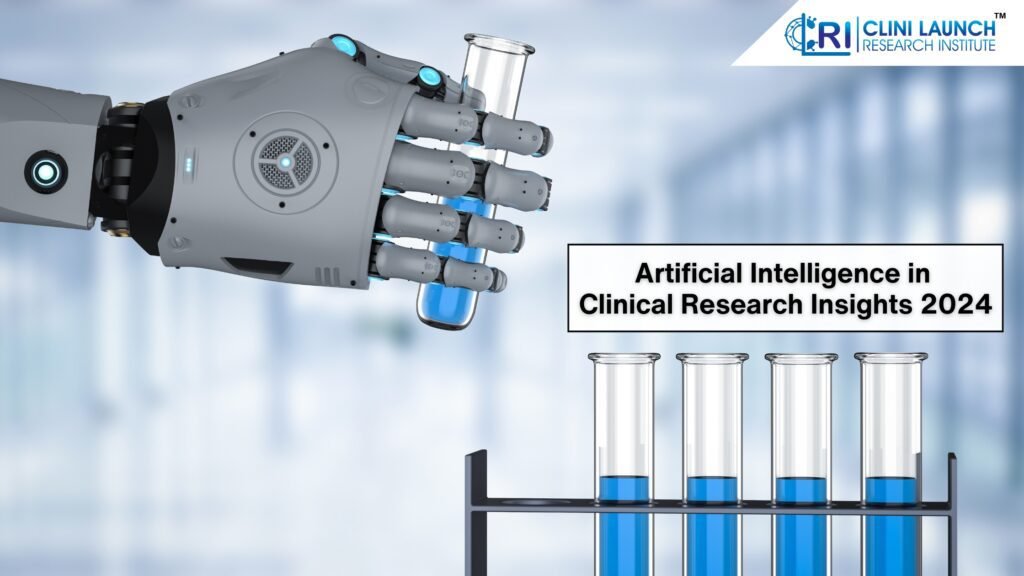
Artificial intelligence (AI) has emerged as a pivotal force across numerous industries, and the healthcare sector stands to benefit immensely from its potential. Within the domain of clinical research, AI is demonstrating its capacity to revolutionize traditional methodologies. This article explores the critical role of artificial intelligence in clinical research, examining its applications, the substantial impact of AI on clinical trials, and its potential to redefine the trajectory of medical science. By comprehending the challenges inherent in conventional clinical research and the innovative solutions AI offers, we can unlock new avenues for enhancing patient outcomes and accelerating scientific progress. Overcoming the Challenges with Artificial Intelligence in Clinical Research Traditional clinical research methodologies are encumbered by significant challenges that hinder efficiency and escalate costs. The financial burden associated with conducting clinical trials is a primary obstacle. The intricate nature of research, encompassing patient recruitment, data collection, and analysis, significantly extends timelines, delaying the introduction of novel treatments and therapies. Moreover, identifying suitable patient populations for clinical trials is a time-consuming and resource-intensive endeavour. The voluminous data generated in clinical research demands robust data management systems, which can be challenging to implement and maintain. Collectively, these factors undermine the efficiency and efficacy of traditional clinical research methodologies, necessitating innovative approaches such as the integration of artificial intelligence to enhance the overall impact of AI on clinical trials. Artificial Intelligence as a Transformative Force Artificial intelligence (AI) is rapidly transforming clinical research. By harnessing AI, researchers can address challenges such as inefficient patient recruitment and lengthy trial timelines. AI applications, including image analysis, predictive modelling, and patient stratification, are driving innovation. AI-powered tools can accurately detect diseases, predict patient outcomes, and optimize treatment plans. Moreover, AI accelerates drug discovery by analyzing vast datasets. The integration of AI applications in healthcare research is profound, enabling researchers to extract valuable insights from complex data. By optimizing patient recruitment and clinical trial design, AI streamlines processes and accelerates drug development. The impact of AI on clinical trials is undeniable, as it empowers researchers to make data-driven decisions and improve patient outcomes. The role of machine learning is paramount in AI’s success. Machine learning algorithms enable AI systems to learn from data, making accurate predictions. As machine learning advances, AI’s potential to revolutionize healthcare will grow, ultimately improving patient care. The Benefits of AI in Clinical Research The integration of artificial intelligence (AI) is poised to revolutionize the landscape of clinical research. By harnessing AI’s capabilities, researchers can significantly enhance efficiency, reduce costs, and ultimately, improve patient outcomes. The application of AI applications in healthcare research offers a plethora of opportunities to optimize the clinical research process. One of the most significant benefits of AI lies in its ability to accelerate drug discovery. By analyzing vast datasets, AI algorithms can rapidly identify potential drug candidates, reducing the time and cost associated with traditional methods. This expedited process has the potential to bring life-saving therapies to patients more quickly. Additionally, AI can optimize clinical trial design and execution, leading to more efficient resource allocation and faster recruitment of participants. Another critical advantage of AI is its capacity to enable personalized medicine. By analyzing patient-specific data, AI algorithms can identify optimal treatment plans, increasing the likelihood of successful outcomes. This precision medicine approach holds the potential to revolutionize healthcare by tailoring treatments to individual patient characteristics. The role of machine learning in medical research is paramount in realizing the full potential of AI in clinical research. By utilizing machine learning algorithms, AI systems can analyze complex data sets, identify patterns, and make predictions, ultimately leading to more accurate diagnoses, effective treatments, and improved patient outcomes. The Future of Artificial Intelligence in Clinical Research The future of clinical research is inextricably linked to advancements in artificial intelligence (AI). As AI technologies continue to evolve, their potential to address complex diseases and unmet medical needs becomes increasingly apparent. The integration of AI applications in healthcare research will be instrumental in shaping the future of medicine. Ethical considerations and robust regulatory frameworks will be crucial as AI assumes a more prominent role in clinical research. It is imperative to ensure that AI systems are developed and deployed responsibly, with a focus on patient safety and data privacy. As the field of machine learning in medical research matures, we can anticipate groundbreaking innovations that will transform the way we diagnose, treat, and prevent diseases. Conclusion The integration of artificial intelligence (AI) into clinical research holds immense potential to revolutionize healthcare. By harnessing AI’s capabilities, researchers can significantly enhance efficiency, reduce costs, and accelerate the development of new treatments. The impact of AI on clinical trials is already evident, with applications in image analysis, predictive modelling, and patient stratification demonstrating promising results. As AI continues to evolve, the role of machine learning in medical research will become increasingly critical. The integration of AI into standard clinical research practices is likely to become the norm, leading to a future where personalized medicine and precision healthcare are the standard of care. Ready to harness the power of AI in clinical research? Enroll in CliniLaunch today and gain the expertise to lead innovation in healthcare. Krishna Talreja Dynamic content marketing professional with expertise in brand storytelling and strategic content creation. Adept at managing diverse content projects, driving engagement, and enhancing brand visibility across multiple platforms.
Pediatric Clinical Trials: Child Care | Technology Integration 2024
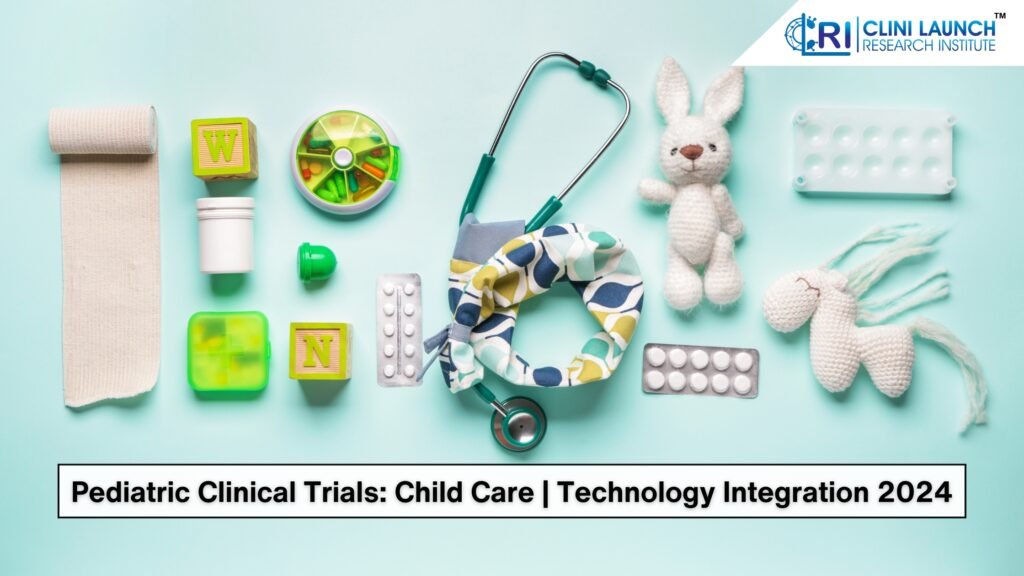
Pediatric clinical trials are critical for improving child health, but they face unique and difficult problems. Unlike adult clinical trials, these trials frequently deal with unique physiological, psychological, and ethical problems. This difference highlights the crucial need for specialized research on youngsters. The goal of this blog is to shed light on the challenges in conducting pediatric trials, to investigate opportunities for innovation in pediatric research, and to emphasize the significance of child-focused clinical studies. Understanding these features allows us to work together to improve children’s health and well-being through rigorous and successful pediatric clinical trials. Upskilling institutes such as CliniLaunch play an important role in bridging the knowledge gap and equipping professionals to handle the intricacies of pediatric clinical trials. Challenges in Conducting Pediatric Clinical Trials Conducting pediatric clinical trials presents particular hurdles that impede advances in child health. Patient recruitment is a significant challenge due to issues such as parental agreement, kid assent, and limited patient groups. Ethical issues, such as balancing risks and rewards, are critical. Data collection and administration are challenging owing to children’s comprehension and caregiver involvement. Navigating diverse regulatory environments increases the strain. Despite the challenges in conducting pediatric trials are critical for opportunities for innovation in pediatric research. This research is critical in generating novel medicines, and diagnostic tools, and enhancing overall childcare. Overcoming these challenges through new methodologies is critical to child-focused clinical studies and, ultimately, improving child health. Opportunities for Innovation in Pediatric Research The integration of technology, like artificial intelligence and digital platforms, can help simplify trial processes, improve data quality, and speed up drug development. Conducting relevant child-focused clinical studies requires a patient-centred strategy that includes children and their families in the research process. Using real-world evidence can supplement standard trial designs, offering important insights into treatment effectiveness in real-world contexts. Establishing strong collaborative collaborations among academics, physicians, patient advocates, industry, and regulatory authorities is critical for overcoming challenges in conducting pediatric trials. These collaborations promote information exchange, resource optimization, and, ultimately, better results for children. Upskilling healthcare practitioners with cutting-edge research procedures and technologies are critical for accelerating opportunities for innovation in pediatric research. By using these ideas, this area of of trials may move forward into a future marked by increased efficiency, patient-centred care, and faster medication discovery. The Indispensable Role of Child-Focused Clinical Studies Child-focused clinical studies are critical to driving progress in pediatric healthcare. These trials serve as the foundation for developing effective treatments, diagnostic tools, and preventative methods customized to children’s specific requirements. Pediatric clinical trials help to improve child health outcomes and quality of life by producing strong evidence using rigorous research approaches. Beyond the immediate benefits to patients, this research helps to guide healthcare policy, budget allocation, and the creation of supportive services for children with chronic diseases. Investing in child-focused clinical studies reflects a long-term commitment to future generations’ well-being, which promotes a healthier and more productive society. The Future of Pediatric Clinical Trials The future of pediatric clinical trials has enormous promise for improving child health. Continued investment in research, together with technological advances, will surely boost the rate of discovery and innovation. To maximize the impact, researchers, doctors, policymakers, and patient advocacy organizations must work together. We can give children a better future by tackling the challenges in conducting pediatric trials and capitalizing on innovation in pediatric research. Upskilling efforts, such as those provided by CliniLaunch, are critical in establishing a trained workforce capable of driving progress in pediatric healthcare. Conclusion To summarize it all, successfully conducting pediatric clinical trials requires a collaborative effort to address the challenges of conducting pediatric trials while also capitalizing on prospects for innovation in pediatric research. By tackling these challenges and capitalizing on advances, the research community may make a substantial contribution to better child health outcomes. It is critical to recognize the importance of child-centred clinical studies in determining the future of pediatric medicine. By investing in research, education, and training, we can all work together to make children’s lives healthier. Consider enrolling in upskilling programs given by organizations such as CliniLaunch to increase your knowledge in this crucial subject. These programs give specialized training and information to professionals, enabling them to negotiate the complexity of trials and contribute to important research. Krishna Talreja Dynamic content marketing professional with expertise in brand storytelling and strategic content creation. Adept at managing diverse content projects, driving engagement, and enhancing brand visibility across multiple platforms.
MBA in Healthcare Management in Bangalore-Skyrocket Success

MBA in Healthcare Management in Bangalore – Your prescription for a successful career success The healthcare industry is tussling with a storm of challenges in present times. An aging population, rising prices, and the quick speed of technological development are putting healthcare providers under unheard-of strain. A recent study found that healthcare spending will increase by 50% in the next decade. Experts who can drive innovation and overcome these issues are needed in this complicated landscape. An MBA in Healthcare Management in Bangalore can equip professionals with the necessary business acumen to lead and transform the healthcare industry. This blog will explore the status of healthcare today, the need for an MBA in healthcare management, and the bright future ahead of graduates in healthcare management. The Healthcare Industry at a Crossroads The healthcare industry is currently experiencing a pivotal moment where healthcare systems are under pressure due to rising expenses and an aging population, which is creating a greater need for chronic care management. Technology integration, including telemedicine and artificial intelligence, creates new potential but also complicated infrastructure and data privacy challenges. Healthcare firms also have to deal with an ever-changing regulatory environment, which makes things more complicated. These factors have a significant impact on the administration and provision of healthcare. Healthcare providers face tremendous pressure to save expenses while maintaining quality of care. Innovative solutions to improve patient experience and operational efficiency are sought after by healthcare businesses. Professionals with the business acumen to foster sustainable growth and a thorough understanding of the healthcare industry are desperately needed in this dynamic environment. Data Tells the Story – Uncovering Trends in Healthcare Management Job Market The numbers paint a stark picture of the challenges the healthcare industry is facing today. A closer examination of the data reveals the severity of these issues. Maintaining Innovative Pursuits: Improving Patient Care and Career Growth in Healthcare Management To address these complex challenges, a comprehensive strategy is necessary to enhance healthcare accessibility. Prioritizing enhanced healthcare accessibility, improved care quality, and financial sustainability is crucial for the industry. India must accelerate its journey towards a healthier population by investing in healthcare infrastructure, bolstering the healthcare workforce, and leveraging digital health technologies. An MBA in Healthcare Management in Bangalore can equip more and more professionals with the skills to drive this desired transformation, leading to a promising healthcare management career outlook and substantial career growth in healthcare management. MBA in Healthcare Management in Bangalore – The Advantage An MBA in Healthcare Management in Bangalore equips professionals with the strategic acumen to successfully navigate the complex Indian healthcare landscape. Core competencies where positions that include leadership, finance, strategy, operations, and healthcare policy are crucial for driving innovation and delivering quality care. By developing these skills, graduates are poised for significant career growth in healthcare management. Clinilaunch strongly going by statistics and results, believes an MBA is crucial for shaping the future of healthcare. It empowers individuals to address pressing challenges such as rising costs, an aging population, and workforce shortages. Graduates are well-prepared to capitalize on the promising healthcare management career outlook and contribute to the transformation of the sector. Career Prospects and Industry Trends The healthcare management job market is robust, offering ample opportunities for MBA in Healthcare Management in Bangalore graduates and working professionals alike. Roles offering hospital administration, healthcare consulting, health insurance, and pharmaceutical companies abound. The industry’s increasing complexity ensures a strong demand for skilled managers. Future developments in healthcare occupations such as population health, artificial intelligence, and telemedicine are causing a rapid evolution in the healthcare sector. Professionals with an MBA in Healthcare Management are more prepared to handle this changing environment. Graduates may drive innovation, spot new opportunities, and influence the direction of healthcare by utilizing their business skills. This translates to substantial career growth in healthcare management for MBA graduates. They are positioned to take on bigger roles in the healthcare industry such as leadership roles and make significant contributions to the industry’s advancement. Concluding thoughts Today, the Indian healthcare industry stands at a critical juncture, grappling with complex challenges. Factors like growing expenses, an aging population, and labour shortages need to be tackled and the best way to do so is asset management in every healthcare firm. Professionals willing to up their career game can upskill with MBA in Healthcare Management in Bangalore that provides a tactical edge. It enables professionals to promote innovation and enhance healthcare delivery by giving them the financial savvy, strategic thinking, and leadership abilities they need. Graduates can look forward to bright career growth in healthcare management and have a say in how the sector develops. The goal of CliniLaunch’s MBA in Healthcare Management course is to give professionals the skills they need to succeed in this fast-paced industry. Ready to develop strong foundational skills such in leadership, finance, and healthcare to drive innovation and improve patient outcomes. Check out CliniLaunch’s platform for more upskilling details.
